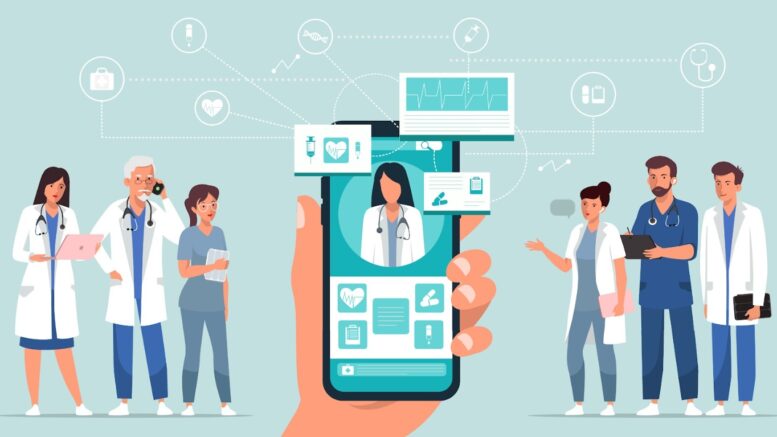As healthcare evolves and adapts to the digital age, virtual healthcare assistants have become an integral part of the industry. These digital tools provide an array of services that enhance the efficiency, precision, and convenience of healthcare. This article will delve deeper into the crucial roles that virtual healthcare assistants play in modern medicine.
Dispensing Medical Information And Advice
One of the primary roles of a virtual healthcare assistant is the provision of accurate and timely medical information. They act as comprehensive medical knowledge hubs, providing information about various illnesses, their symptoms, available treatment options, and preventive measures. This information is particularly invaluable for patients who are newly diagnosed or seeking to understand their health better.
Plus, some virtual assistants can provide suggestions for managing chronic conditions based on established medical guidelines. They can recommend lifestyle modifications, offer advice on diet and exercise, and even assist with sleep management. This kind of personalized advice can significantly improve disease management and overall patient health.
Medication Reminders
The importance of medication adherence in managing diseases cannot be overstated. Virtual healthcare assistants can ensure that patients adhere to their medication schedules through automated reminders. These reminders can be sent through various channels, including email, text messages, or automated voice calls. This feature is especially beneficial for the elderly, those with memory impairments, or individuals managing multiple medications.
Facilitating Appointment Scheduling
Virtual healthcare assistants can revolutionize the process of appointment scheduling. They can help patients book, reschedule, or cancel doctor’s appointments seamlessly, without the hassle of manual scheduling or lengthy phone calls. They can also send reminders for upcoming appointments, helping to reduce missed appointments and improve the efficiency of healthcare services.
Remote Health Monitoring
For patients with chronic diseases, virtual healthcare assistants provide an invaluable service in remote health monitoring. By tracking health metrics like blood sugar levels in diabetic patients or heart rate in those with heart disease, they can keep a regular watch over patients’ health status. This data can be shared with healthcare providers for review, ensuring that any changes or anomalies in the patient’s health are promptly addressed.
Telemedicine Services
Virtual healthcare assistants have played a crucial role in the surge of telemedicine services. They can facilitate video consultations with doctors, reducing the need for patients to travel. This feature is of immense value for patients who are unable to commute due to their health condition, those living in remote areas, or during situations like pandemics when in-person consultations are not always feasible or safe.
Mental Health Support
An exciting development in the world of virtual healthcare assistants is the integration of mental health support. Some virtual assistants are equipped with algorithms that enable them to provide basic counseling services and help manage mental health conditions such as anxiety and depression. These tools often use cognitive-behavioral therapy techniques, providing immediate, personalized support to those in need.
Data Collection And Analysis
Virtual healthcare assistants collect a vast range of health data from patients. From noting down symptoms to understanding lifestyle habits, these digital tools compile comprehensive data for healthcare providers. This information can be analyzed and used to help doctors make more accurate diagnoses, devise personalized treatment plans, and track the progress of patients’ health.

Enhancing Healthcare Accessibility
One of the most transformative aspects of virtual healthcare assistants is their potential to make healthcare more accessible. By providing health information and services digitally, they bridge the gap for people in remote or underserved areas. Patients can access accurate health information, schedule appointments, and even consult with healthcare providers without the need for physical travel.
Health Education
Virtual healthcare assistants play a vital role in patient education. By providing accurate, easy-to-understand health information, they empower patients to take an active role in their health management. They can debunk myths, provide credible information, and encourage preventive care, ultimately leading to improved health outcomes.
AI-Powered Predictive Analytics
Virtual healthcare assistants are increasingly employing artificial intelligence (AI) for predictive analytics, representing a major leap in modern medicine. By analyzing patient data, these tools can predict potential health risks, such as the likelihood of a heart attack or a hypoglycemic event. This proactive approach allows for early intervention and personalized treatment plans, improving patient care while also offering valuable public health insights. This intersection of AI and healthcare through virtual assistants heralds a future where early detection, prevention, and personalized care are the norm.
Wrapping Up
Virtual healthcare assistants have revolutionized the field of healthcare by bridging the communication gap between healthcare providers and patients, enhancing adherence to treatment, improving healthcare access, and contributing to an overall improved patient experience. As technology continues to evolve, the role of virtual healthcare assistants will undoubtedly become even more prominent and indispensable in modern medicine.
